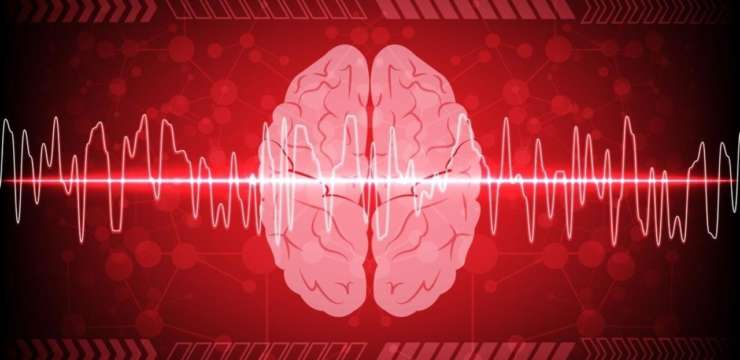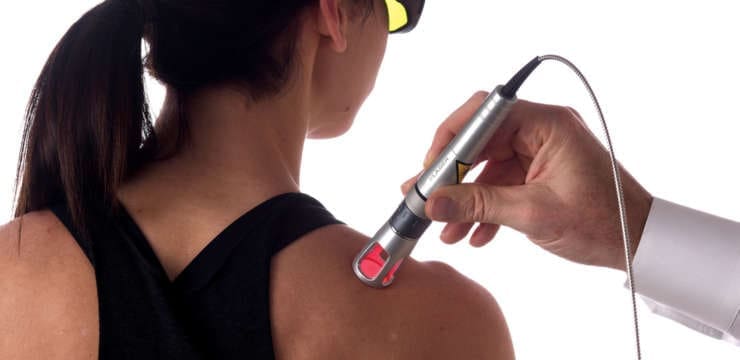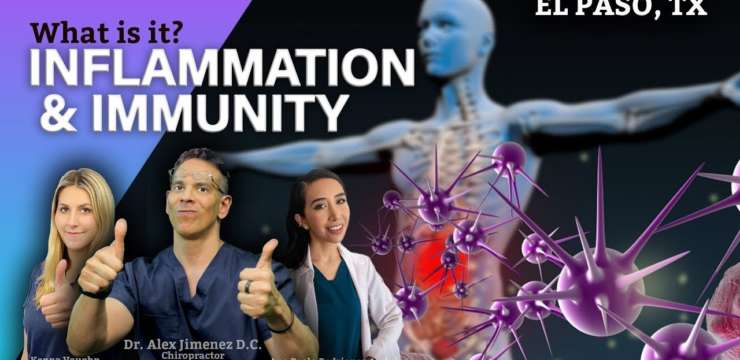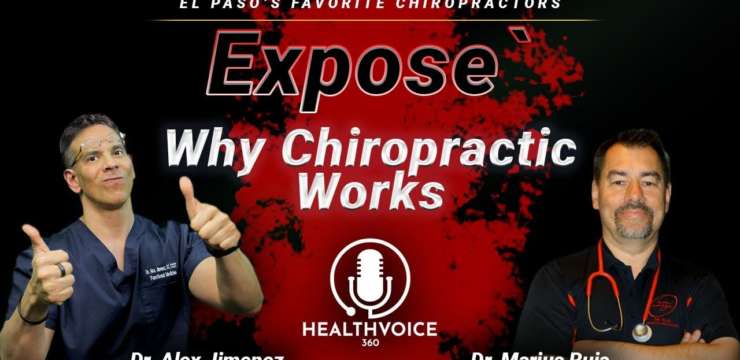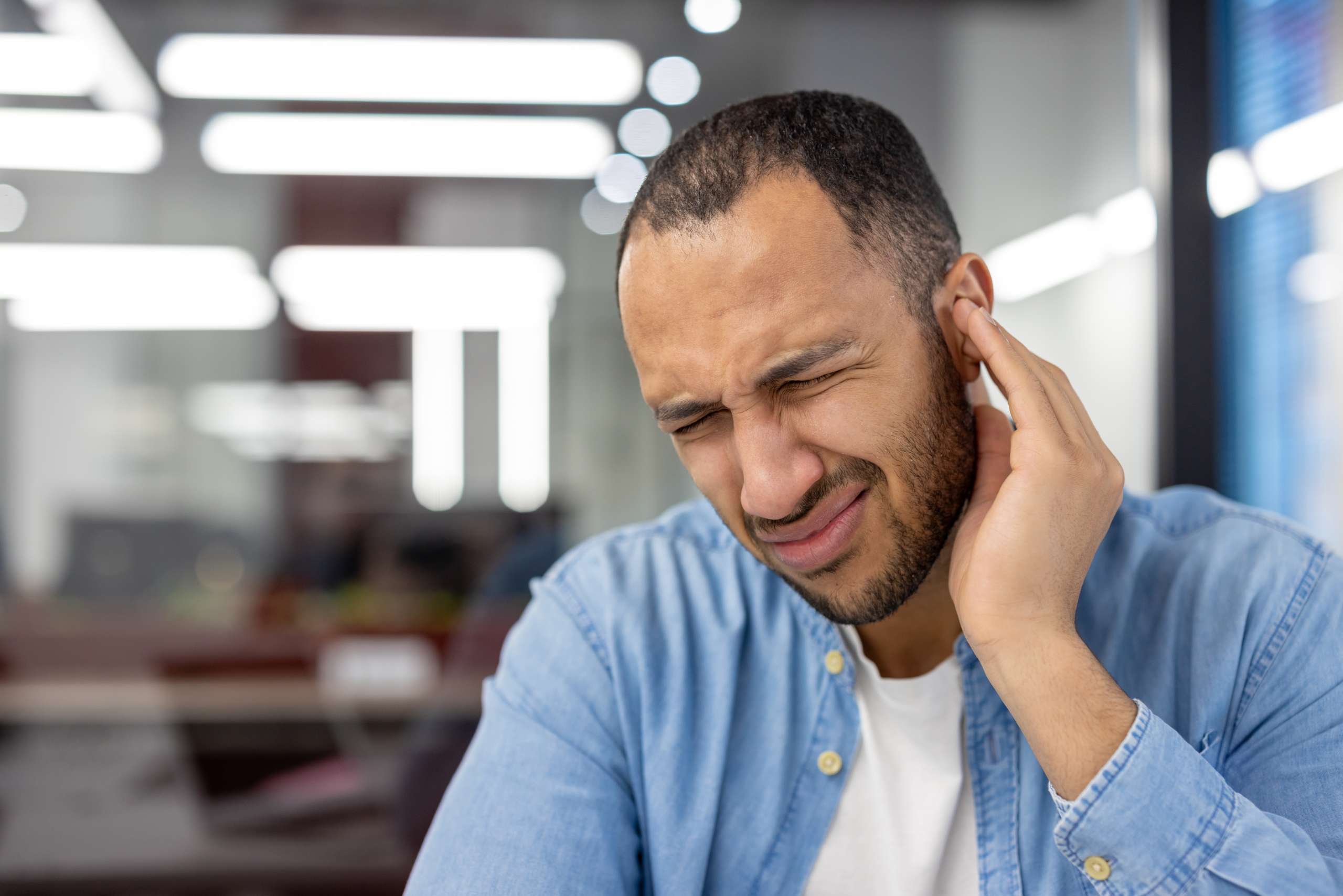
Discover innovative approaches in chiropractic care for TBI that can lead to significant symptom relief from tinnitus.
Table of Contents
Traumatic Brain Injury and Hearing Problems: Understanding Tinnitus, Hearing Loss, Vestibular Disorders, and More
A sudden blow to the head can cause traumatic brain injury (TBI), which can hurt the brain. This can occur due to falls, car crashes, sports injuries, or other similar incidents. Many people with TBI experience hearing problems, such as ringing in the ears, difficulty hearing sounds clearly, or sensitivity to noise. These issues can have a profound impact on daily life, making it challenging to concentrate or appreciate quiet moments. Vestibular disorders, which cause problems with balance and dizziness, can also happen after a TBI. This article discusses TBI, including its causes, the symptoms it can cause in hearing and balance, and strategies for managing them. We also examine tinnitus, a common ringing sound that can occur after a TBI, and its impact on the body. This guide uses medical research and expert opinions to make these issues easy to understand.
What Is Traumatic Brain Injury (TBI)?
Traumatic brain injury happens when an outside force hurts the brain. A bump, hit, or jolt to the head could all be this force. It can also occur if something penetrates the skull. TBI can range from mild, like a concussion, to severe, which could cause long-term damage or make someone pass out. The skull protects the brain, which is surrounded by cerebrospinal fluid. But if the blow is strong enough, the brain may hit the inside of the skull. As a result, the brain’s tissues get torn, bruised, or bleed. In mild cases, symptoms may include headaches, dizziness, or a feeling of disorientation. Severe TBI can cause memory loss, problems with behavior, or even a coma. Traumatic brain injury is common. Every year, millions of people worldwide face this issue (NeuroTucson, n.d.). It is a big reason why people in the United States are disabled. Some of the causes are car accidents that hurt people of all ages, sports injuries in kids, and falls in older people. Military personnel often get TBI from explosions and fighting.
Mechanisms of TBI: Primary and Secondary Injuries
It’s easier to understand TBI if you examine how the damage occurs. There are two main types of injury mechanisms: primary and secondary.
The primary injury occurs immediately upon impact. This is the direct damage caused by the force. This can occur in several ways. One type of injury is a contact injury, which occurs when something hits the head, such as a baseball bat or the ground, when someone falls. This can break the skull, cut the brain, or cause bleeding under the skull. Another type of injury is acceleration-deceleration. The head moves quickly here, just like it does when someone gets whiplash in a car accident. The brain moves around inside the skull, which stretches and tears nerve fibers. This is known as diffuse axonal injury, which means that the brain’s wiring is damaged (Chendrasekhar, 2024; Wikipedia, 2024). When there are blasts, such as explosions, pressure waves travel through the skull and ear canals, damaging fragile structures. This can rupture eardrums or parts of the inner ear immediately (NeuroTucson, n.d.; Armstrong et al., 2023).
Secondary injury occurs after the initial one and can worsen over hours or days. Inflammation causes the brain to swell, which in turn cuts off blood flow and leads to ischemia, resulting in cells not receiving enough oxygen. When brain chemicals leak out, they can make cells too excited, which can ultimately lead to their death. Free radicals can cause oxidative stress, which can further damage cells. Energy failure occurs when cells are unable to produce energy, resulting in the death of additional cells (Chodobski et al., 2019; Physiopedia, n.d.; Prins et al., 2019). These mechanisms elucidate the exacerbation of symptoms following the initial impact. For instance, swelling puts pressure on parts of the brain that control hearing or balance. Doctors can better predict and treat problems if they know the difference between primary and secondary injuries.
When someone has TBI, it doesn’t just affect their ability to think or move. It can hurt your balance and hearing. The ear and brain work together to maintain the body’s stability and process sounds. If either one is hurt, it can cause problems like hearing loss, ringing in the ears that won’t go away, or dizziness. Research indicates that individuals with TBI frequently report these issues, even when the injury appears minor (Harris et al., 2024). The auditory and vestibular pathways in the brain, which send signals for sound and balance, can be damaged. This can cause symptoms that last for weeks, months, or even years. Knowing what TBI is can help you understand why your hearing and balance change. Next, we examine how TBI directly impacts hearing.
How TBI Causes Symptoms Like Ringing in the Ears, Hearing Loss, and Noise Disturbances
TBI can hurt parts of the brain or ear that are involved in hearing. The ear has three main parts: the middle ear, the inner ear, and the outer ear. The outer ear picks up sound. The little bones in the middle ear amplify their sound. The inner ear sends information to the brain. A head injury can fracture these bones and damage the delicate hairs in the inner ear, or tear the eardrum. These hairs can feel vibrations. They can’t send clear signals because of damage, which leads to hearing loss. If you lose your hearing, sounds may sound muffled or louder. It could affect one ear or both. Tinnitus, or ringing in the ears, is a common side effect of TBI. This happens because the brain’s hearing centers are mixed up. When the ear fails to send the correct signals, the brain generates sounds on its own, such as buzzing or ringing (Cleveland Clinic, n.d.). Studies have linked TBI to a higher rate of tinnitus, especially in veterans (Coco et al., 2024).
Changes in the brain make people sensitive to sounds, or noise disturbances. The brain may have trouble blocking out stimuli, which can make everyday sounds seem too loud. This is what we call hyperacusis. Theodoroff et al. (2022) assert that traumatic brain injury (TBI) can impair the auditory nerve or regions of the brain responsible for sound processing. One study discovered that tinnitus was more pronounced in individuals with head traumas compared to those without (Vernon et al., 1994). Another study found that TBI exacerbates tinnitus and also worsens headaches and lightheadedness (Folmer & Griest, 2003). These signs usually occur immediately after the injury, but they can also develop later. Blast injuries make this worse, and they happen a lot in the military. They also produce pressure waves that can harm the brain and hearing (Clifford et al., 2022). Non-blast TBIs, like those that happen when you fall, are a common cause of tinnitus (Le et al., 2024). TBIs can also cause brain swelling or bleeding, which can make it hard to hear. When a signal is disrupted, it produces noise that is distorted or continues indefinitely. Although the brain may change over time, many people continue to experience symptoms. These problems are more than just annoying; they are serious. Sleep, work, and relationships are all affected. Identifying problems early helps with therapy. Now, we’ll discuss how TBI affects hearing and cognitive function in general.
How TBI Can Impact a Person’s Auditory and Cognitive Function
Auditory function refers to the ability to hear and comprehend sounds. TBI can make this weaker by hurting the brain or ear. For instance, sensorineural hearing loss occurs when the nerves in the inner ear are harmed. This kind is common after TBI and hard to fix (NeuroTucson, n.d.). People may struggle in places with excessive noise, such as restaurants. The brain cannot distinguish between speech and background noise. This is a problem with how the brain processes sound. Research indicates that individuals with traumatic brain injury (TBI) struggle to comprehend words, despite normal hearing assessments (Harris et al., 2024). Thinking, remembering, and paying attention are all parts of cognitive function. TBI often hurts these. The situation worsens when hearing problems are added to the mix. Tinnitus can be distracting, making it difficult to focus. Being sensitive to noise can make you more stressed, which in turn can lead to fatigue.
Veterans with TBI from noise or blasts may have both hearing loss and tinnitus. This has an impact on everyday activities, such as maintaining conversations (Clifford et al., 2022). Memory problems occur when the brain has to work harder to process information, which means it has less energy available to remember. Anxiety and depression can come after. Constant ringing can irritate people and worsen their mood. A study indicated elevated depression rates among TBI patients with tinnitus (Folmer & Griest, 2003). Cognitive tests indicate that individuals exhibit diminished cognitive processing in noisy settings. There is a difference between kids and adults. Age is a big factor in the risk of hearing loss in adults. But TBI makes this happen faster. Hearing aids and other early interventions can help both hearing and thinking. Overall, TBI is associated with issues related to hearing and cognitive function. Fixing one thing helps the other. Therapies help the brain learn how to adapt to new situations. Knowing this connection helps you get better.
A TBI Symptom Questionnaire Example:
Vestibular Disorders Caused by TBI
Vestibular disorders are problems with the inner ear’s balancing system that are often caused by traumatic brain injury. The vestibular system helps us maintain our balance and determine our position in space. The senses in the body and the eyes are involved. When TBI hurts this system, it can cause problems like imbalance, lightheadedness, and more.
Causes of Vestibular Disorders in TBI
TBI can affect the vestibular system in either a direct or indirect manner. The primary causes are injuries to the inner ear, such as the displacement of tiny crystals called otoconia. This causes benign paroxysmal positional vertigo (BPPV), which is the second most common vestibular problem after TBI (Wallace & Lifshitz, 2022; Vestibular Disorders Association, n.d.; Akin et al., 2021). Blasts or hits can create small holes in the ear called fistulas, allowing fluid to leak out. Secondary causes include swelling of the brain or damage to the brainstem or the central pathways of the cerebellum. These regions handle signals that help keep the balance. Shearing forces damage nerves, making it difficult for them to send messages (Alhilali et al., 2019; Ernst et al., 2021). Vestibular signs emerge rapidly in acute TBI. Approximately half of individuals with TBI report experiencing dizziness (NeuroTucson, n.d.). Chronic cases, such as those resulting from repeated concussions, accumulate damage over time.
Symptoms of Vestibular Disorders
People often feel dizzy and like they are spinning, especially when they change positions. When you’re dizzy, everything seems to be moving. Problems with balance can lead to falls and gait ataxia, characterized by unsteady walking (Alhilali et al., 2019). Nausea and vomiting often occur together, similar to motion sickness. Oscillopsia is a condition that causes your vision to become blurry when you move your head. With movement, headaches and exhaustion become worse. The Vestibular Illnesses Association (n.d.) and the Balance and Dizziness Center (n.d.) note that the symptoms of BPPV may come and go, whereas the symptoms of other illnesses may persist. People may not report their symptoms as much if they think they are only related to the head injury. However, testing indicates issues in up to 80% of TBI patients (Marcus et al., 2022).
Impact on Auditory and Sensory Functions
Vestibular disorders not only impact balance but also intersect with auditory and sensory functions. Damage to the inner ear affects both sound and balance because it controls both. For instance, dizziness can make tinnitus worse by adding to the stress. When the brain has trouble processing signals from the eyes, ears, and body, it is referred to as sensory overload (AAPMR, n.d.). This has a significant impact on everyday life. Poor spatial awareness makes it difficult to navigate through crowds. Driving or reading can exacerbate symptoms. As the brain tries to compensate for the loss, cognitive strain increases, which makes people feel more tired and less able to focus. In severe cases, it leads to anxiety about falling. It makes people feel alone when they can’t hear. Early vestibular therapy, including exercises designed to reposition crystals in BPPV, can be beneficial (Wallace & Lifshitz, 2022). Understanding vestibular disorders clarifies the extensive implications of TBI. Taking care of them helps the whole recovery process.
How TBI Symptoms Like Tinnitus Can Affect a Person’s Sensory Function
Our sensory function includes how we perceive touch, sound, sight, and other senses. Tinnitus from TBI makes this worse. It affects more than just hearing; it also affects balance and pain tolerance. Tinnitus may cause sound pain. This hypersensitivity changes how a person sees the world. Calm settings may be beneficial for you, while loud ones can cause stress (Cleveland Clinic, n.d.). Problems with the head, neck, and ears are common. Stress or pressure in the brain is a big reason why people get headaches. Whiplash injuries often make the neck hurt. Your ears might feel full or sore. Dizziness or vertigo happens when the balancing system in the inner ear is damaged. This vestibular issue is making the world spin. Studies show that approximately half of people with TBI experience dizziness (NeuroTucson, n.d.). Other symptoms include pain in the jaw that is related to TMJ. The pulse of tinnitus may be the same as the heartbeat, which could indicate that blood flow isn’t functioning properly. Sleep deprivation caused by constant noise makes sensory impairment worse.
Blurred vision or tired eyes are serious signs. Wind or clothing can be uncomfortable because your skin is more sensitive to touch. The effects build up. Tinnitus can put a significant amount of stress on the body, potentially leading to high blood pressure. It makes you tired all the time. Tinnitus management may help restore sensory balance. This is made worse by feelings of dizziness. Imbalance affects how we perceive balance and movement, making coordination more challenging. This makes it even harder to distinguish sounds when you have hearing problems.
What Is Tinnitus? Its Causes and Symptoms Correlating with TBI
Tinnitus is the sensation of hearing sounds that don’t come from outside. It’s like noise that isn’t there, like ringing, buzzing, clicking, or roaring. It can occur frequently or sporadically (Cleveland Clinic, n.d.). Hearing loss from aging or being around loud noises can cause this. But TBI is a big deal. Head trauma hurts the brain or the nerves in the ear. This sends the wrong signals, which causes tinnitus. The symptoms are different. Some people hear high-pitched rings, while others hear low-pitched hums. It can go in one ear after an injury. Stress or quiet can make things louder. Tinnitus often starts soon after TBI. In cases of head injury, it is louder and more irritating (Vernon et al., 1994). Veterans with TBI report significant impairment (Coco et al., 2024). Other factors that can cause it include earwax, infections, or certain medications. But TBI’s direct hit sets it apart. Some of the signs include trouble sleeping, irritability, and difficulty concentrating. The situation worsens if it is not treated. But options like sound therapy help mask it. Tinnitus and vestibular problems can both happen after a traumatic brain injury (TBI) because they both come from damage to the inner ear.
Clinical Observations from Dr. Alexander Jimenez
Dr. Alexander Jimenez, a chiropractor and nurse practitioner in El Paso, Texas, provides information about TBI and the associated problems. He has been treating injuries from car accidents, sports, work, and personal accidents for more than 30 years (Jimenez, n.d.a; Jimenez, n.d.b). His practice employs dual-scope diagnosis, which examines issues from both a medical and a chiropractic perspective. This includes looking at the bones and the person’s overall health. He looks into strange signs of TBI, like headaches, problems with balance, or feeling lightheaded, that are connected to vestibular diseases. Advanced imaging is used to find neuromusculoskeletal problems. This helps find problems with the brain, nerves, or inner ear. As part of procedures to restore balance, strength, and flexibility, people engage in specific exercises. Stress in the head and neck is a common symptom of TBI that massage therapy can help with. Acupuncture helps people heal and feel less pain. These integrative methods address both symptoms and their underlying causes.
The clinic handles both medical care and legal paperwork related to car accidents. This ensures that patients receive comprehensive support from diagnosis to recovery. Dr. Jimenez encourages people to use natural remedies. He avoids long-term problems by addressing issues such as inflammation or poor posture. His method helps people get healthier by getting them to move more and eat better. This is particularly helpful for individuals with vestibular problems or tinnitus resulting from a TBI. Chiropractic adjustments may help with neck alignment and ear pressure, potentially improving balance. Overall, his work demonstrates the benefits of integrated care.
Treatment Options for TBI-Related Hearing and Vestibular Issues
The first step in treating TBI-related hearing and balance problems is determining their specific nature. Audiologists check your hearing and balance. Sound therapy for tinnitus utilizes white noise to distract your mind from it. Hearing aids help with loss. In very severe cases, cochlear implants can restore hearing. Vestibular rehabilitation therapy (VRT) teaches exercises to help people with vestibular disorders improve their balance. Canalith repositioning maneuvers move crystals that have come loose in BPPV (Vestibular Disorders Association, n.d.). Dr. Jimenez’s integrative medicine is helpful. Working out makes the body stronger. Massage helps alleviate stress, which can exacerbate symptoms. Drugs can help with nausea and dizziness, but many people prefer to use natural remedies for a long time. Avoiding things that trigger flares, such as loud noises or sudden movements, helps. Therapy for problems with thinking can also be beneficial. Counseling helps with anxiety caused by noise or imbalance. It takes time to get better. Early care leads to better results.
Personal Injury Rehabilitation- Video
Conclusion
Traumatic brain injury can cause tinnitus, hearing loss, noise sensitivity, and vestibular problems like vertigo and dizziness. These problems can turn normal sounds and movements into big problems. By understanding the primary and secondary mechanisms of TBI, from immediate effects such as nerve damage to delayed effects like swelling, we can better comprehend the causes of TBI symptoms and their impact on hearing, thinking, and other senses. Tinnitus is a constant reminder of the fragility of the brain. It can exacerbate other problems with the head, neck, and ears. But early detection and treatment that covers everything gives people hope. Dr. Alexander Jimenez and other experts suggest that chiropractic adjustments, targeted exercises, massage, and acupuncture are among the integrative methods that may help treat underlying problems, accelerate natural healing, and reduce the risk of long-term effects. If you have these symptoms after a fall, car accident, or sports injury, don’t ignore them. Seeking professional help as soon as possible can help you regain your balance, reduce stress, and enhance your overall quality of life. Be careful, stay informed, and always remember that recovery is possible with the right help.
References
- AAPMR. (n.d.). Vestibular dysfunction (after brain injury). now.aapmr.org/vestibular-dysfunction-after-brain-injury/
- Akin, F. W., et al. (2021). Understanding and managing trauma-induced vestibular deficits. Journal of International Advanced Otology, 17(6), 559-565. pmc.ncbi.nlm.nih.gov/articles/PMC8975387/
- Alhilali, L. M., et al. (2019). Vestibular dysfunction in acute traumatic brain injury. Journal of Neurology, 266(10), 2430-2433. pmc.ncbi.nlm.nih.gov/articles/PMC6765474/
- Armstrong, M. J., et al. (2023). Traumatic brain injury: Mechanisms, manifestations, and visual sequelae. Frontiers in Neurology, 14, 1290665. pmc.ncbi.nlm.nih.gov/articles/PMC9995859/
- Balance and Dizziness Center. (n.d.). Dizziness and imbalance after mild traumatic brain injury (mTBI). balanceanddizziness.org/disorders/vestibular-disorders/dizziness-imbalance-after-mtbi/
- Chendrasekhar, A. (2024). Classification and complications of traumatic brain injury. Medscape. emedicine.medscape.com/article/326643-overview
- Chodobski, A., et al. (2019). A review of the molecular mechanisms of traumatic brain injury. World Neurosurgery, 131, 126-132. www.sciencedirect.com/science/article/pii/S187887501931945X
- Cleveland Clinic. (n.d.). Tinnitus. my.clevelandclinic.org/health/symptoms/14164-tinnitus
- Clifford, R. E., et al. (2022). The interrelationship of tinnitus and hearing loss secondary to age, noise exposure, and traumatic brain injury. American Journal of Audiology, 31(4), 1114-1124. pubmed.ncbi.nlm.nih.gov/35612496/
- Coco, L., et al. (2024). Associations between traumatic brain injury and severity of tinnitus-related functional impairment among US military veterans: A national, population-based study. Journal of Head Trauma Rehabilitation, 39(3), 218-230. pubmed.ncbi.nlm.nih.gov/38709830/
- Ernst, A., et al. (2021). Post-traumatic peripheral vestibular disorders (excluding positional vertigo) in workers following head trauma. Scientific Reports, 11(1), 23429. www.nature.com/articles/s41598-021-02987-5
- Folmer, R. L., & Griest, S. E. (2003). Chronic tinnitus resulting from head or neck injuries. The Laryngoscope, 113(5), 821-827. pubmed.ncbi.nlm.nih.gov/12792317/
- Harris, M., et al. (2024). Mild traumatic brain injury and the auditory system: An overview of the mechanisms, clinical presentations, and current diagnostic modalities. Journal of Neurotrauma, 41(13-14), 1524-1532. pubmed.ncbi.nlm.nih.gov/37742111/
- Jimenez, A. (n.d.a). El Paso, TX, doctor of chiropractic. dralexjimenez.com/
- Jimenez, A. (n.d.b). Dr. Alexander Jimenez, DC, APRN, FNP-BC, IFMCP, CFMP, ATN ?. LinkedIn. www.linkedin.com/in/dralexjimenez/
- Le, M., et al. (2024). Prevalence of tinnitus following non-blast-related traumatic brain injury: A systematic review of literature. Brain Injury, 38(11), 859-868. pubmed.ncbi.nlm.nih.gov/38775672/
- Marcus, H. J., et al. (2022). Patterns of vestibular dysfunction in chronic traumatic brain injury. Frontiers in Neurology, 13, 942349. www.frontiersin.org/journals/neurology/articles/10.3389/fneur.2022.942349/full
- NeuroTucson. (n.d.). Traumatic brain injury and the ear. neurotucson.com/traumatic-brain-injury-and-the-ear/
- Physiopedia. (n.d.). Pathophysiology of traumatic brain injury. www.physio-pedia.com/Pathophysiology_of_Traumatic_Brain_Injury
- Prins, M., et al. (2019). Traumatic brain injuries: Pathophysiology and potential therapeutic targets. Frontiers in Cellular Neuroscience, 13, 528. www.frontiersin.org/journals/cellular-neuroscience/articles/10.3389/fncel.2019.00528/full
- Theodoroff, S. M., et al. (2022). Concussion management guidelines neglect auditory symptoms. Journal of Speech, Language, and Hearing Research, 65(3), 653-658. pubmed.ncbi.nlm.nih.gov/32941367/
- Vernon, J. A., et al. (1994). Characteristics of tinnitus induced by head injury. Archives of Otolaryngology–Head & Neck Surgery, 120(5), 547-551. pubmed.ncbi.nlm.nih.gov/8172707/
- Vestibular Disorders Association. (n.d.). Traumatic brain injury. vestibular.org/article/diagnosis-treatment/types-of-vestibular-disorders/tbi/
- Wallace, B., & Lifshitz, J. (2022). Traumatic brain injury and vestibular pathology as a comorbidity after blast exposure. Physical Therapy, 99(11), 1464-1476. pubmed.ncbi.nlm.nih.gov/19628578/
- Wikipedia. (2024). Traumatic brain injury. en.wikipedia.org/wiki/Traumatic_brain_injury
Disclaimers
Professional Scope of Practice *
The information herein on "Chiropractic Care and Recovery Tips for Reducing TBI & Tinnitus" is not intended to replace a one-on-one relationship with a qualified health care professional or licensed physician and is not medical advice. We encourage you to make healthcare decisions based on your research and partnership with a qualified healthcare professional.
Blog Information & Scope Discussions
Welcome to El Paso's wellness blog, where Dr. Alex Jimenez, DC, FNP-C, a board-certified Family Practice Nurse Practitioner (FNP-C) and Chiropractor (DC), presents insights on how our team is dedicated to holistic healing and personalized care. Our practice aligns with evidence-based treatment protocols inspired by integrative medicine principles, similar to those found on dralexjimenez.com, focusing on restoring health naturally for patients of all ages.
Our areas of chiropractic practice include Wellness & Nutrition, Chronic Pain, Personal Injury, Auto Accident Care, Work Injuries, Back Injury, Low Back Pain, Neck Pain, Migraine Headaches, Sports Injuries, Severe Sciatica, Scoliosis, Complex Herniated Discs, Fibromyalgia, Chronic Pain, Complex Injuries, Stress Management, Functional Medicine Treatments, and in-scope care protocols.
Our information scope is limited to chiropractic, musculoskeletal, physical medicine, wellness, contributing etiological viscerosomatic disturbances within clinical presentations, associated somato-visceral reflex clinical dynamics, subluxation complexes, sensitive health issues, and functional medicine articles, topics, and discussions.
We provide and present clinical collaboration with specialists from various disciplines. Each specialist is governed by their professional scope of practice and their jurisdiction of licensure. We use functional health & wellness protocols to treat and support care for the injuries or disorders of the musculoskeletal system.
Our videos, posts, topics, subjects, and insights cover clinical matters, issues, and topics that relate to and directly or indirectly support our clinical scope of practice.*
Our office has reasonably attempted to provide supportive citations and has identified the relevant research studies or studies supporting our posts. We provide copies of supporting research studies available to regulatory boards and the public upon request.
We understand that we cover matters that require an additional explanation of how they may assist in a particular care plan or treatment protocol; therefore, to discuss the subject matter above further, please feel free to ask Dr. Alex Jimenez, DC, APRN, FNP-BC, or contact us at 915-850-0900.
We are here to help you and your family.
Blessings
Dr. Alex Jimenez DC, MSACP, APRN, FNP-BC*, CCST, IFMCP, CFMP, ATN
email: coach@elpasofunctionalmedicine.com
Licensed as a Doctor of Chiropractic (DC) in Texas & New Mexico*
Texas DC License # TX5807
New Mexico DC License # NM-DC2182
Licensed as a Registered Nurse (RN*) in Texas & Multistate
Texas RN License # 1191402
ANCC FNP-BC: Board Certified Nurse Practitioner*
Compact Status: Multi-State License: Authorized to Practice in 40 States*
Graduate with Honors: ICHS: MSN-FNP (Family Nurse Practitioner Program)
Degree Granted. Master's in Family Practice MSN Diploma (Cum Laude)
Dr. Alex Jimenez, DC, APRN, FNP-BC*, CFMP, IFMCP, ATN, CCST
My Digital Business Card


